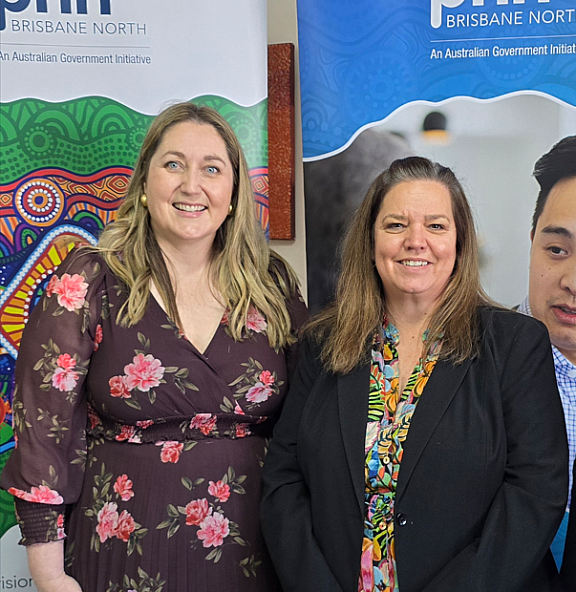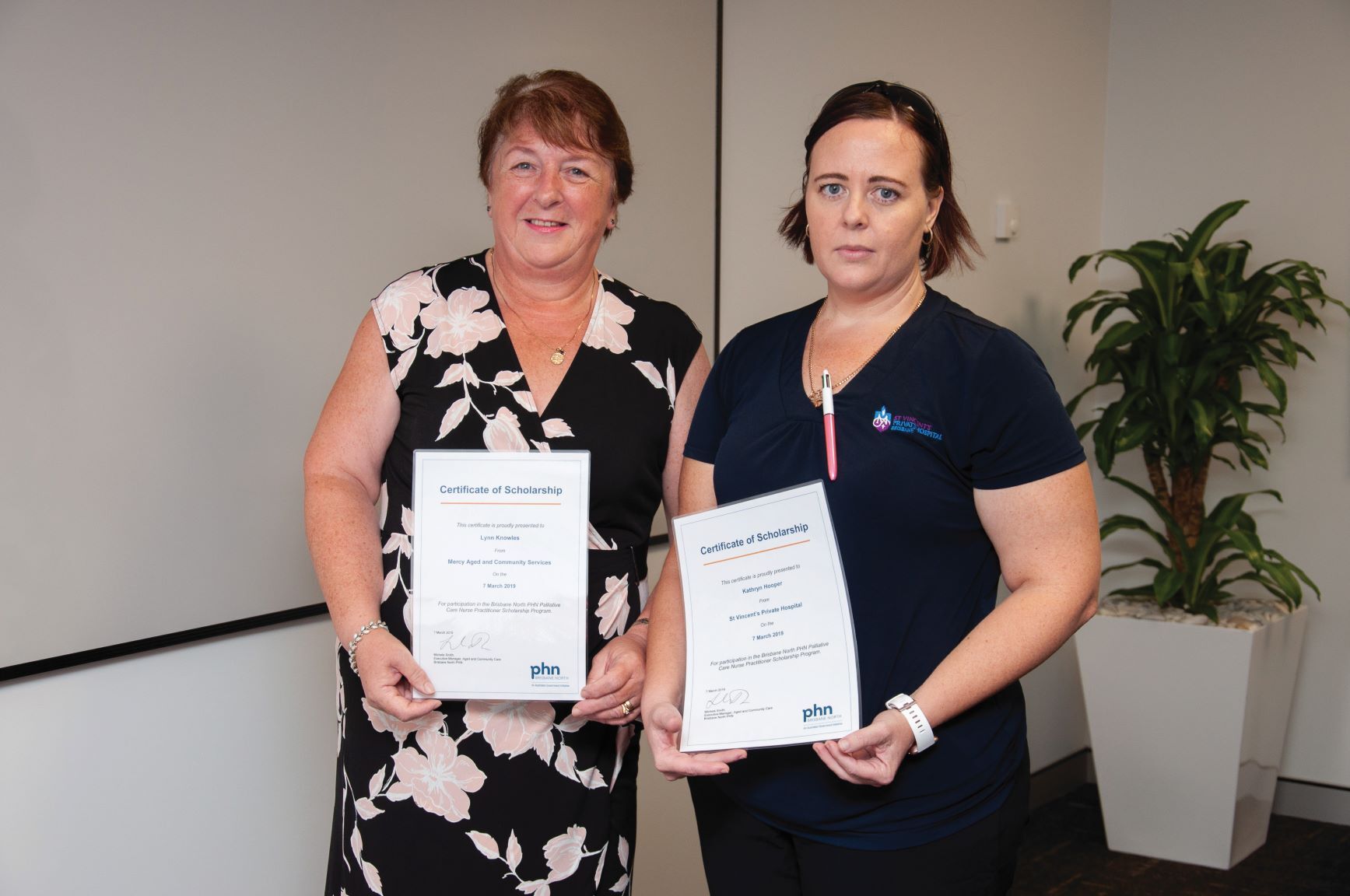
Announced: North Brisbane and Moreton Bay Medicare Mental Health Centres opening from July
Mar 27, 2025
Jan 13, 2021

Palliative care scholarship recipients Kathryn Hooper, Lynne Meggison, Jane Stephens and Lynn Knowles have spoken about what an honour it is to be able to offer guidance to patients at the end of their lives.
During 2020, Brisbane North PHN provided funding to upskill the local workforce through the palliative care scholarship program. The PHN offered two scholarships for students within the Masters of Palliative Care, as well as six Graduate Certificate in Palliative Care scholarships.
Palliative care nurse practitioners possess highly advanced nursing skills and provide support to patients with complex palliative care needs. These qualifications allow nursing staff to develop high levels of communication and leadership skills, and advanced clinical knowledge in specialised fields of practice.
As of December 2020, scholarship recipients have either completed or are close to graduating. Many have been supporting vulnerable community members, studying throughout the COVID-19 pandemic and juggling family commitments.
Masters of Palliative Care graduate and Worimi woman Kathryn Hooper said the scholarship program had allowed her to embark on postgraduate studies in a supported and sustainable way.
“This was something that I felt was financially unsustainable until I had this opportunity. In every moment of self-doubt and success I have always been able to maintain a sense of accomplishment knowing that so many people were anticipating and wanting me to achieve and be successful,” she said.
Kathryn currently works at St Vincent’s Hospital in Brisbane within the specialist community palliative care team. She has also worked at Karuna Hospice for many years as a Clinical Nurse (CN) and a CN/Educator within the aged care and public health sectors.
In Ms Hooper’s experience, palliative care empowers not only patients but patients’ families as well.
“It is not an area of practice where patients are identified by bed numbers, routines and tasks. Palliative care empowers patient autonomy and self-determination, patients and families are at the forefront and care goals are directed by them,” Ms Hooper said.
Scholarship recipient Jane Stephens said she enjoys working as a palliative care nurse practitioner as it offers her a more holistic view of her patients.
“I like that unlike many other specialties, palliative considers the person as a whole, requiring not only an ability to assess and treat symptoms, but also to look at the person’s psychosocial and spiritual needs. I enjoy the connections made with patients and their families, and I have the added bonus of working in the community where I see people in their home environments,” Ms Stephens said.
To scholarship graduate Lynne Meggison, palliative care practise is a natural extension of nursing. “I have always been interested in palliative care and supporting the patient and their family through a journey of care. To me it is just natural for a nurse to support a patient at the end of life,” she said.
Lynn Knowles said palliative care patient advocacy forms a vitally important part of her work. “Being an advocate for that person, it is my job to ensure that patient choices or advance health directives are completed early, in order that their wishes can be put in place to ensure that not only the family but the palliative team carry them out as best they can,” Ms Knowles said.
The longer-term goal of the scholarship program is to build a network of palliative care nurse practitioners across acute, community, aged and primary care with more effective and accessible services. The program also aims to improve communication between services and provide better support to patients navigating the system.
The PHN congratulates all recent graduates and wishes them the best for the next stage of their careers.

We acknowledge the Traditional Custodians within our region: the Jagera, Turrbal, Gubbi Gubbi, Waka Waka and the Ningy Ningy peoples of where we meet, work and learn. Brisbane North PHN is committed to reconciliation. Our vision for reconciliation is where the stories of our First Nations’ people are heard and shared, and networks are formed.